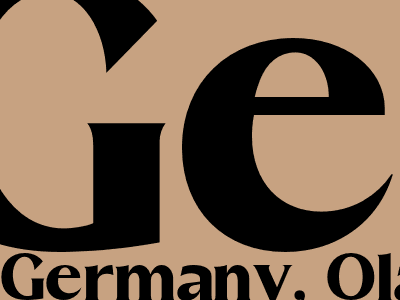
Germany in Focus: Olaf Scholz's Plans to Reshape Europe's Economic Landscape
From Fiscal Prudence to Investment-Led Growth
German Chancellor Olaf Scholz has unveiled an ambitious economic agenda that aims to reshape the country's role within the European Union and boost its competitiveness on the global stage. Departing from the long-standing policy of fiscal prudence, Scholz's plan prioritizes strategic investments in key sectors, including infrastructure, climate protection, and digitalization.
The Green Transition: A Driving Force
At the heart of Scholz's agenda is a commitment to the green transition. Recognizing the urgency of addressing climate change, the plan allocates substantial funding for renewable energy development, energy efficiency measures, and electric vehicle infrastructure.
A Shift in EU Economic Governance
Scholz's agenda extends beyond Germany's borders, proposing a fundamental shift in the EU's economic governance framework. He advocates for relaxed fiscal rules to allow member states to invest more heavily in growth-oriented projects.
Boosting Innovation and Research
The plan places significant emphasis on fostering innovation and research. It aims to increase funding for research and development, support start-ups, and create a more favorable environment for entrepreneurship.
A More Equitable Society
Social equity is also a key pillar of Scholz's agenda. He proposes measures to strengthen social protection systems, improve access to affordable housing, and promote equal opportunities for all citizens.
Challenges Ahead
While Scholz's plan has been met with widespread praise, it faces significant challenges. The COVID-19 pandemic has left Germany with a substantial budget deficit, and the war in Ukraine has further strained the economy.
Fiscal Sustainability Concerns
Critics argue that Scholz's investment-led growth strategy could lead to unsustainable levels of debt. They caution that Germany must carefully balance its fiscal responsibilities with its aspirations for economic recovery.
International Implications
Scholz's agenda has implications for the EU as a whole. His proposals for relaxed fiscal rules could lead to a reassessment of the Stability and Growth Pact, the EU's economic governance framework.
Strengthening the EU's Economic Resilience
By investing in key sectors and promoting social equity, Scholz aims to strengthen the EU's economic resilience and competitiveness in the global economy.
Conclusion
Olaf Scholz's economic agenda is a bold vision for Germany's future. By prioritizing investment, innovation, and social equity, he aims to reshape the country's role within the EU and boost its economic growth prospects. However, the plan faces significant challenges, including fiscal sustainability concerns and the ongoing impact of the COVID-19 pandemic and the war in Ukraine.